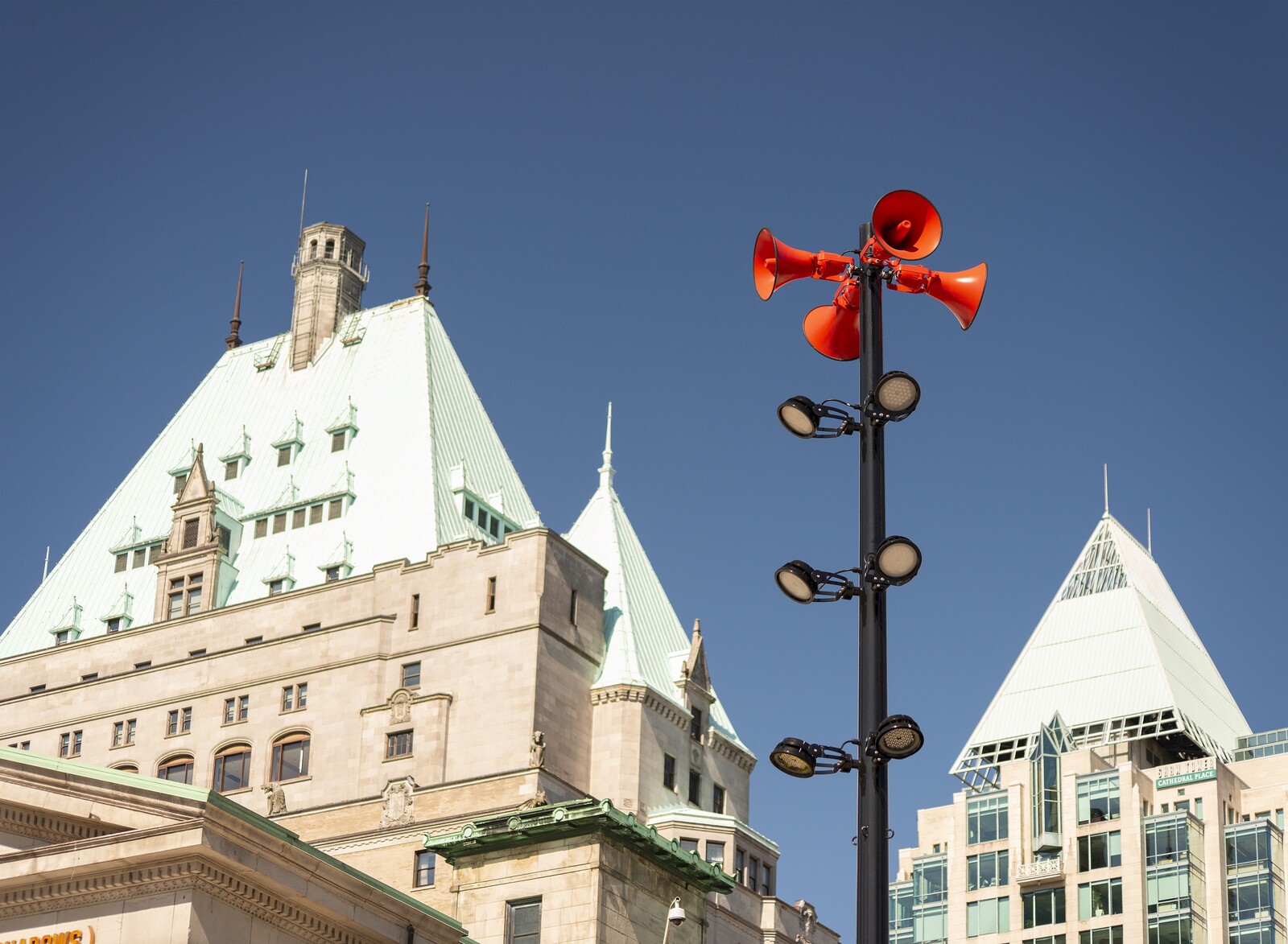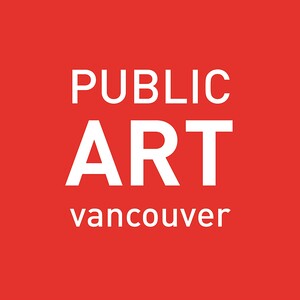Every Friday at 5pm, Weekend Chime chimes two notes based on Loverboy’s iconic song.
Essay by Jeff Derkson
When you hear the notes of Brady Cranfield’s Weekend Chime, you may be transported back to a particular moment in your summer of 1982. If you lived in Vancouver, you had a good chance of hearing Loverboy’s “Working for the Weekend” rising from a transistor radio on Kits beach tuned to Vancouver’s CKLG 73 hit radio station. But this iconic, hook-laden song from the Vancouver-based band’s late 1981 album Get Lucky has endured because of its universal appeal for us to get out of work and fire up the fun of the weekend. The chorus that Cranfield is now broadcasting to the city of Vancouver still shines out as a gem of synth and guitar-driven power pop. In that moment, Loverboy, with red leather pants, signature headbands, bright yellow shirts and ’80s hair, unleashed a bouncy song to propel people out of work and out on the dancefloor or to the beach.
Back when that song was first on the airwaves, pop music entered a transition where ’70s rock was nudged aside by new wave, and the visual aesthetics of music changed as MTV launched, signalling a shift from local radio stations and their hit parades to TV. Vancouver as well was on the cusp of change, economically and culturally, and Loverboy’s rambunctious tune was surfing these uneasy waves.
The nature of labour and work in the city and province was being shaken up as the economy turned the corner out of the post-war economic expansion and headed into a deep economic recession. The Social Credit government used this as an opportunity to shrink the public sector, give the private sector a bigger piece of the economic pie, to weaken unions, and to shift the emphasis of the economy from the extraction of raw materials toward real estate, finance and services. This period, leading up to Expo 86—the celebratory moment the province opened itself to global investment and when houses became seen predominantly as commodities—was British Columbia’s dive into neoliberalism. With the downsizing and privatization, the shakiness of the resource economy, and expansion of non-union office jobs, the workers of the province were at the cusp of “the new reality,” as Premier Bill Bennett called it. This new reality was a big step in the direction of the type of economy we have now in North America, where the disparities between the rich and the rest are greater and planned stability had given way to precarity and swooping recessions. Yet, in 1983, this new reality was not taken as the only possibility and a grand coalition of workers, teachers, students, cultural workers, and social groups pushed the province to the brink of a general strike through the mass Operation Solidarity. At the same time, in that hot political climate, Indigenous legal and political challenges to land use and ownership heated up in the courts and at numerous blockades on provincial roads that shut down logging sites, blocked movement, and challenged the province’s assertion that Indigenous land title did not exist. With unemployment high and wages stagnant, and with the colonial present of B.C. exposed, there certainly was a reason to work for the weekend and get to the pub, the club, the beach, and the streets for protest or relief.
So, what does it mean to have this tune chimed out to the city today, as the COVID-19 pandemic lockdown eases amidst economic instability, high unemployment and promises of a return to an undefined “new normal”? What does it mean to hear this anthem to the weekend and the freedom to enjoy the city, or to have the right to the city, when the future once again seems both charted and uncertain? Pop songs circulate easier now than they ever have and hence they can lose some of the important specificities of the time and place that shaped them. “Working for the Weekend” is a universal song, born in a particular moment, for the joy of getting off work, for life outside of work. Brady Cranfield’s recirculation of the iconic hook, as a public announcement, is a timely chime that the separation of work and life is still a goal, even in a time when life and work are more and more subsumed into our ever-changing new realities. But, as the song says, “You better start from the start.”
Jeff Derksen is a poet and critic who lives and works in Vancouver and Vienna. He is a member of the artistic research collaboration Urban Subjects.



